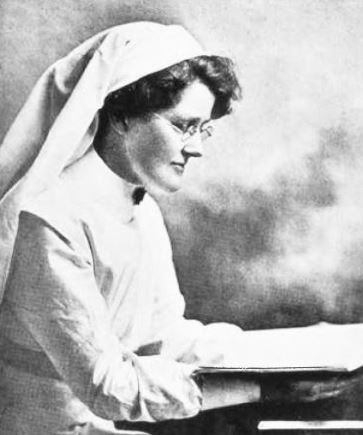Sister Maud Primrose

In 1918 Maud Primrose, a trained nurse who became the Secretary and a Life Member of the Royal Victorian Trained Nurses Association, wrote to the Footscray Council. She suggested the establishment of a ‘fees for services’ scheme for the services of visiting nurses, based on the New Zealand scheme. New Zealand had a world record low infant mortality rate at that time. She had undertaken specialised training for a year in about 1913, at the Plunket Society in Dunedin New Zealand, under the distinctive regime of (Sir) Frederic Truby King at Karitane.
After returning to Melbourne, Primrose threw herself into what became her major life’s work, the promotion of the Truby King method of caring for babies. With the support of her mentor Dr John Springthorpe, between 1916 and 1920 she helped to establish the Society for the Health of Women and Children of Victoria—Plunket System. A rival to the Victorian Baby Health Centres Association, the first Truby King or Plunket infant welfare clinic opened at Coburg in 1919.
As well as cycling to her patients, she was one of the first women in Melbourne to hold a motorcar driver’s licence
Several other clinics followed, and specially trained mothercraft nurses also worked in private homes and gave advice in department stores. Trained at the Tweddle Hospital for Babies and School of Mothercraft from 1921, the nurses were formally named ‘Primrose nurses’. In subsequent years the lively debates over the most appropriate regime for feeding and managing babies, particularly over the protein content of artificial milk formula, made infant welfare more like ‘infant warfare’.
Primrose founded the Truby King Mothercraft League of South Australia in October 1934 then returned to Victoria to run a hospital again at Kerang. Her influence continued in the mid-1930s through her articles on infant care in the New Idea and the Housewife, and radio broadcasts, ‘The 3UZ Truby King Mother Craft Circle’.
Reports of Primrose’s initiative as a pioneer nurse suggested her strength and determination, but her gentleness, mischievous nature, and personal warmth and affection for children belied the rigidity and discipline of the Truby King system. An attractive, strong woman, she was known as ‘Sandy’ by some family members because of her reddish hair. She also spent some time with her sister Lily and her family at their property near Balranald, New South Wales.
past and present, of this land Wurundjeri on which Tweddle provide its services.
